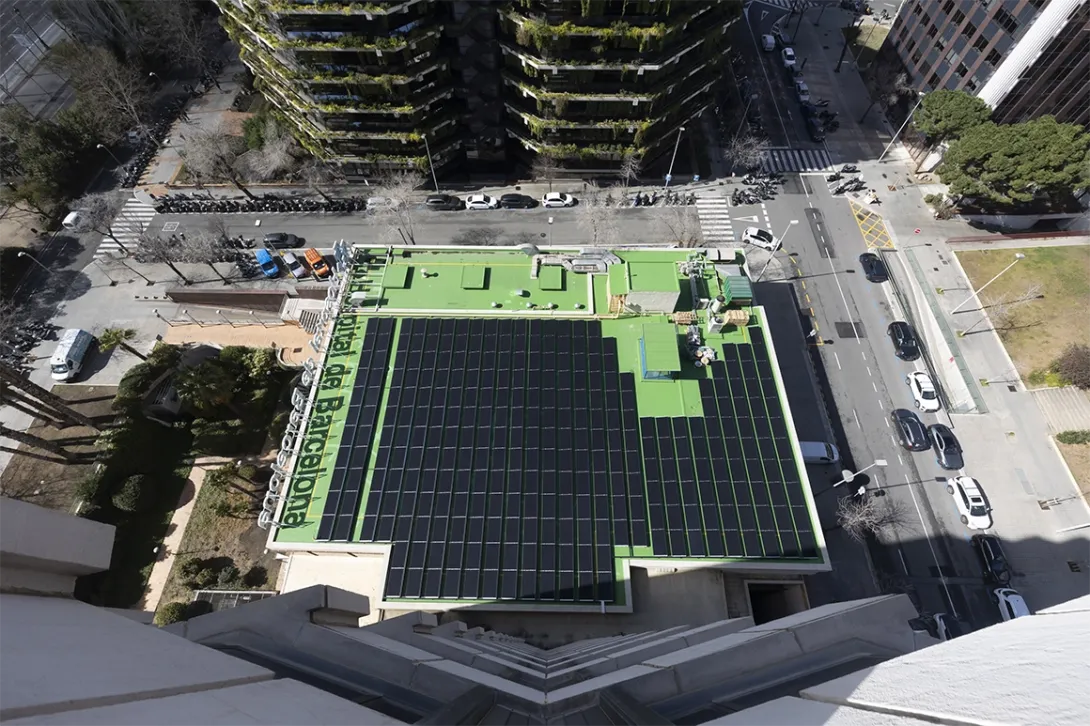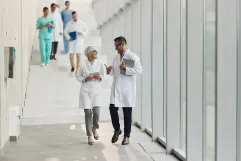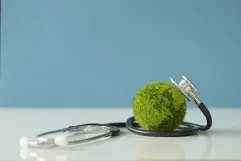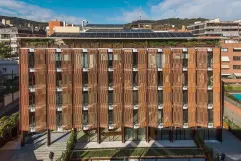
A state-of-the-art hospital
The Assistència Group is an example of the healthcare sector’s willingness to contribute to environmental protection. Amongst the main steps taken recently, the new solar panel installation on the Hospital de Barcelona stands out.
Some healthcare centres are already taking on different transformation processes to face up to the challenges we will have in the near future on the subject of sustainability and circular economy. An example of this can be found at the Hospital de Barcelona, which, amongst other steps, has recently completed the installation and start up of a series of solar panels on the roof of its emblematic building on the Avenida Diagonal.
As explained by Álvaro Buenvarón, Engineering and General Services Manager at the hospital, “this step forms part of the organisation’s social commitment to reduce electricity consumption and to produce as much clean energy as possible.” Logically, the equipment of this healthcare centre produces an important consumption. At the same time, the architectonic structure, with little surface area on the upper part and the shadow of the adjacent buildings made the optimisation of a photovoltaic installation difficult.
However, the 290 full black panels, in addition to the eight optimisers and an inverter installed, have obtained a higher energy efficiency than was considered at first, in addition to providing an elegant integrated aesthetic appearance.
The energy audits carried out have been used to analyse where there are opportunities to reduce consumption. From this point onwards, the hospital has opted for working with an energy company to make them into a reality. As Buenvarón indicates, “we wanted to provide our grain of sand through an important project, which condenses our willingness to take on a transition towards the use of cleaner, renewable energy sources.” and in favour of sustainability with the maintenance of quality in patient care.
Objective: reducing the carbon footprint
At the end of last year, the Hospital de Barcelona once again passed the audit successfully to renew its energy classification. In this exhaustive review different aspects were tackled, such as cooling, heating, hot water or lighting in the different spaces. The hospital obtained a score of C (on a qualification scale that ranges from A to G), with a better score than the previous year.
The organisation is already working on other steps to move forward on this aspect. In addition to improving its waste management processes day by day, they have also proposed lengthening the average service life of their equipment, giving them new jobs, when necessary.
This is not all. As Álvaro Buenvarón, Engineering and General Services Manager at the hospital explained, currently they area planning ways of reusing the water (for example, reusing the condensation water from the air conditioning and other equipment, catching it with nets; or establishing strategies to take advantage of rain water.)
As confirmed by the 2023 corporate report, some steps already carried out – such as the refusal to water the gardens with mains water during the drought, the implementation of flow regulation systems in the taps or the change to a type of soap that needs less water for washing clothing, having allowed them to save around 6.5 million litres of water.



